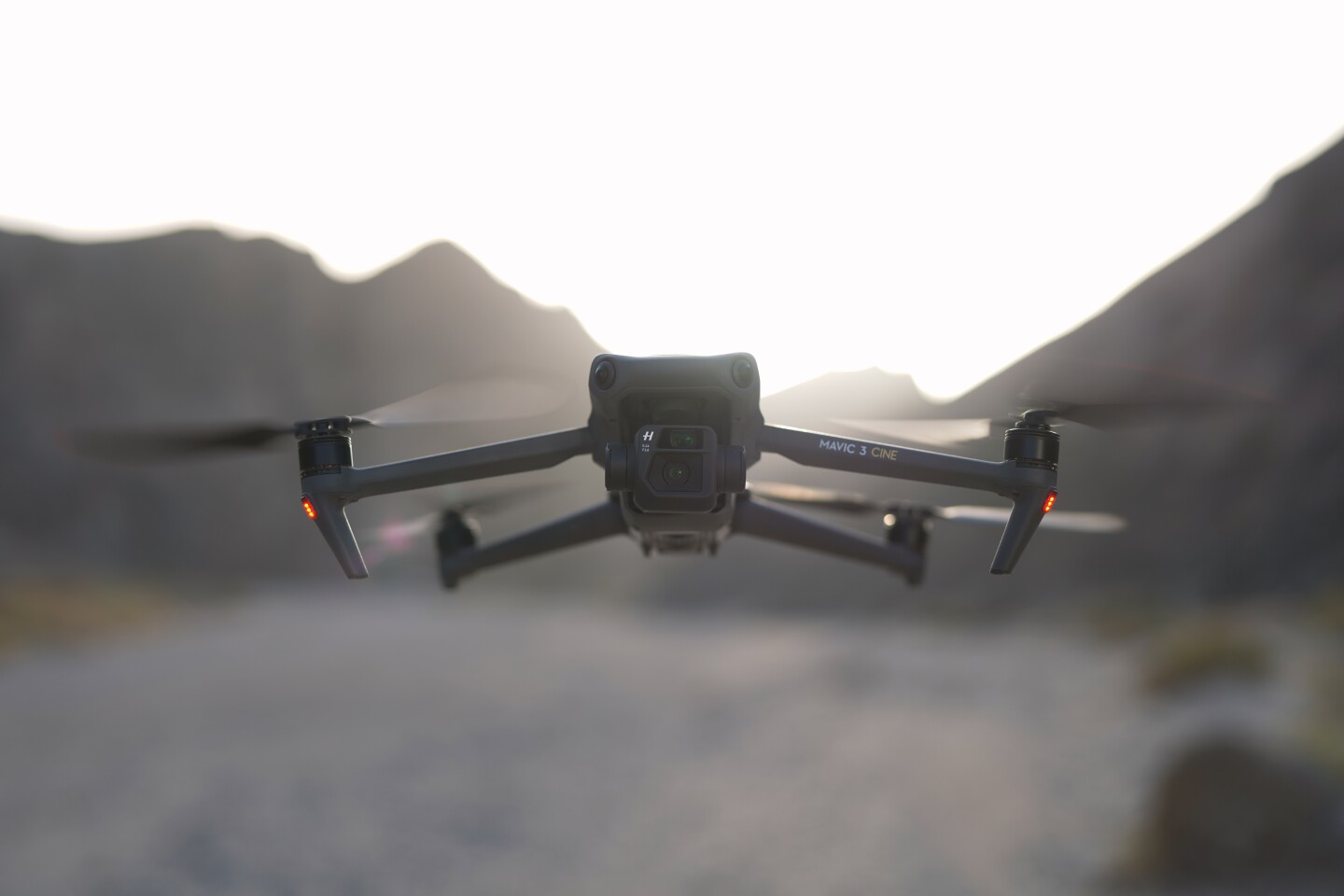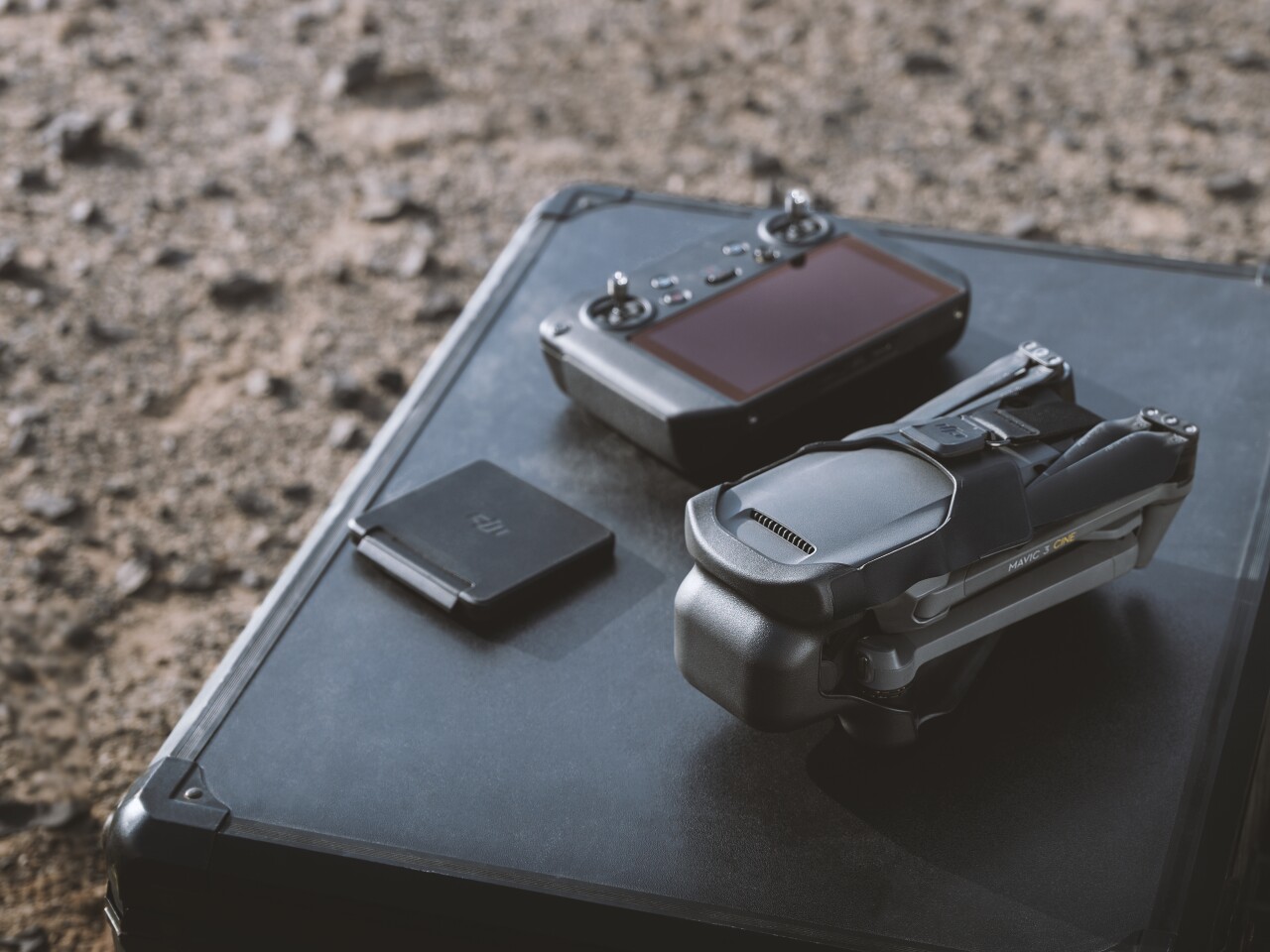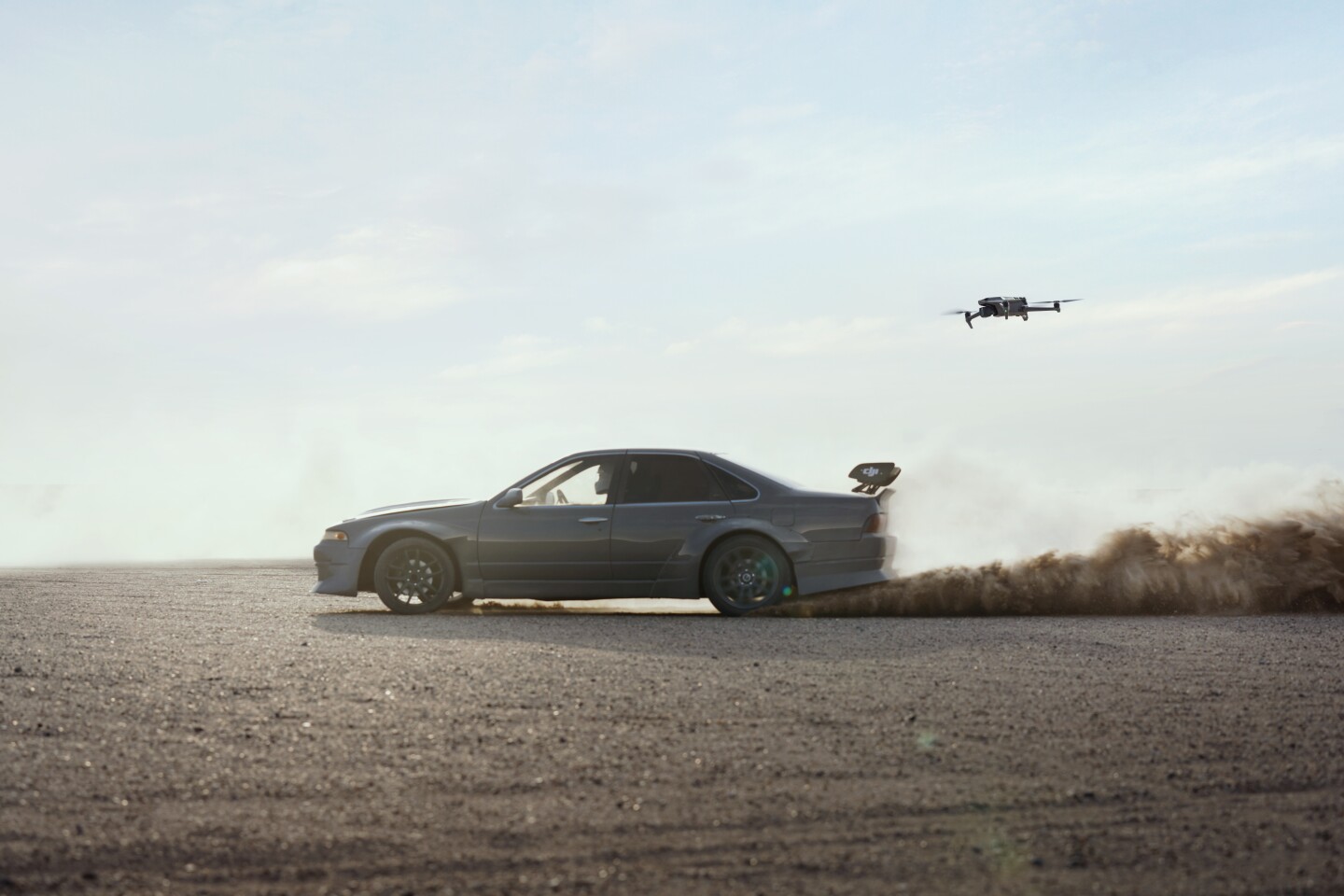Three years after collaborating with Hasselblad for the Mavic 2 Pro‘s camera module, DJI has pushed the envelope further for the launch of the Mavic 3 by mounting a dual camera setup to the stabilized gimbal comprising a Four Thirds main camera capable of 5.1K video and a 12-megapixel telephoto shooter.
As with the Mavic 2 Pro, DJI has joined forces with Swedish high-imaging house Hasselblad for the Mavic 3. The resulting dual-camera setup is mounted to a 3-axis motorized gimbal and sports a Four Thirds CMOS camera with a 24-mm prime lens and a 28x digital/optical hybrid zoom camera with a 162-mm f/4.4 telephoto lens.
The main camera is capable of shooting 20-MP stills in 12-bit RAW format, 5.1K (5,120 x 2,700) video at 50 frames per second (fps), and 4K (3,840 x 2,160) at up to 120 fps. Up to a billion colors can be captured thanks to 10-bit D-Log recording, 12.8 stops of native dynamic range should help find detail in the shadows, the camera module taps into the drone numerous vision sensors to help with fast focus, while that prime lens has a variable f/2.8-f/11 aperture and 84-degree field of view.
The zoom unit features a 1/2-inch CMOS sensor for 12-MP stills, 15-degree field of view, 4x digital zoom, and is able to record 4K or Full HD video at up to 30 fps.

DJI
DJI has also launched a Cine edition of the Mavic 3, which shares most of the same specs as the standard offering but benefits from ProRes 4:2:2 encoding for a data rate of up to 3,772 Mbps and 1 TB of SSD storage instead of the standard edition’s 8 GB, with the company including a new 10 Gbps data cable for fast data transfer.
Naturally, the new drone comes packing a bunch of intelligent flight modes, with DJI highlighting the inclusion of MasterShots from the Air 2S that “lets users create high-quality content more easily and quickly,” Panorama Mode that stitches and processes images directly in the drone, and QuickTransfer that allows users to wirelessly transfer images and footage from drone to mobile device over Wi-Fi 6.
A new O3+ transmission system is reported to deliver “stable, smooth, and clear video” up to a range of 15 km (9.3 miles) and at a low lag live feed resolution of up to 1080p at 60 fps, even in challenging conditions. And users can look forward to up to 46 minutes in the air between charges of the 5,000-mAh battery (in ideal flying conditions), helped along by a more streamlined drone shape, a lowering the weight of the Mavic 3’s structure and components (the standard drone weighs in at 895 g/31.5 oz, while the Cine is a little heavier at 899 g/31.7 oz), and the employment of high-efficiency motors and props.

DJI
DJI says that the drone can lock on to signals from GPS, GLONASS and BeiDou satellites for improved positioning, while also catering for improved hovering stability and making it less likely to drift in the air.
An omnidirectional obstacle sensor system made up of six fish-eye and two wide-angle sensors, supplemented by an IR sensor, feed the latest flavors of the company’s Advanced Pilot Assistance System and ActiveTrack with detection data. The latter allows the drone to fly around or alongside a moving subject, as well as forward, back, left, right or diagonally in relation to that subject, and if the subject goes out of frame, the visual system will continue tracking to quickly pick up where it left off.
Onboard safety systems will alert pilots if they fly near sensitive locations, allow the authorities to identify and monitor drones in such areas, make users are aware of any local restrictions on altitude, and issue warnings if nearby aircraft are sending out ADS-B signals.
DJI has updated the return-to-home feature that flies the drone back to its starting point when running low on juice or if it goes out of range. Improvements see the Mavic 3 now able to automatically take the shortest and safest route home, while also checking wind speed to ensure it has enough power for the return journey.

DJI
“Mavic 3 enables users to effortlessly make epic shots without compromising on small size, stunning performance, pervasive flight safety, and dazzling image quality,” said DJI’s Ferdinand Wolf. “We are confident that this drone will astonish videography and photography enthusiasts, as well as professional production houses and media workers around the globe.”
And that pro focus translates to a rather high starting price of US$2,199, but that’s peanuts compared to the Cine version which flies in for $4,999 (though this option does come with more goodies in the package, including a new RC Pro flight controller and three batteries). The video below has more.
DJI – This is DJI Mavic 3
Product page: DJI Mavic 3
Source of Article